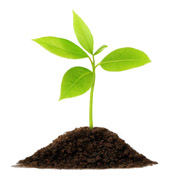Agronomy and Horticulture, Department of
Plant and Soil Sciences eLibrary
Soils - Part 3: Soil Organic Matter
Document Type
Learning Object
Date of this Version
1999
Citation
Plant and Soil Sciences eLibrary (PASSeL) Lesson
Abstract
In this lesson, you will learn such terms as organic, soil organic matter, nutrient, decomposition, humus, compost, and soil structure. In addition, you will be able to predict the effect of land uses on soil organic matter including the effects of different types of vegetation.
[This lesson, as well as the other nine lessons in the Soils series, is taken from the “Soils Home Study Course,” published in 1999 by the University of Nebraska Cooperative Extension.]
Introduction
Why do we care so much about soil organic matter? Is it some vague favorable connection with organic farming? What does the term “organic” mean in a scientific sense? Fortunately, our instinct that soil organic matter is a good thing is well-founded. Under most circumstances, soils with more organic matter are superior to those with less. The reasons for this may not always be the same, but that only makes it all the more important to understand as many of the implications of soil organic matter content as possible.
Modules:
- Lesson home
- Introduction
- Some Definitions
- Where Does Soil Organic Matter Come From?
- What is Good About Soil Organic Matter?
- What Kind of Harm Can Come From Soil Organic Matter?
- Why Does Soil Organic Matter Content Differ From Soil to Soil and Change?
- Secondary Effects of Soil Organic Matter
- Summary
- Glossary



Comments
Copyright © 1999 Plant and Soil Sciences eLibrary. Used by permission.